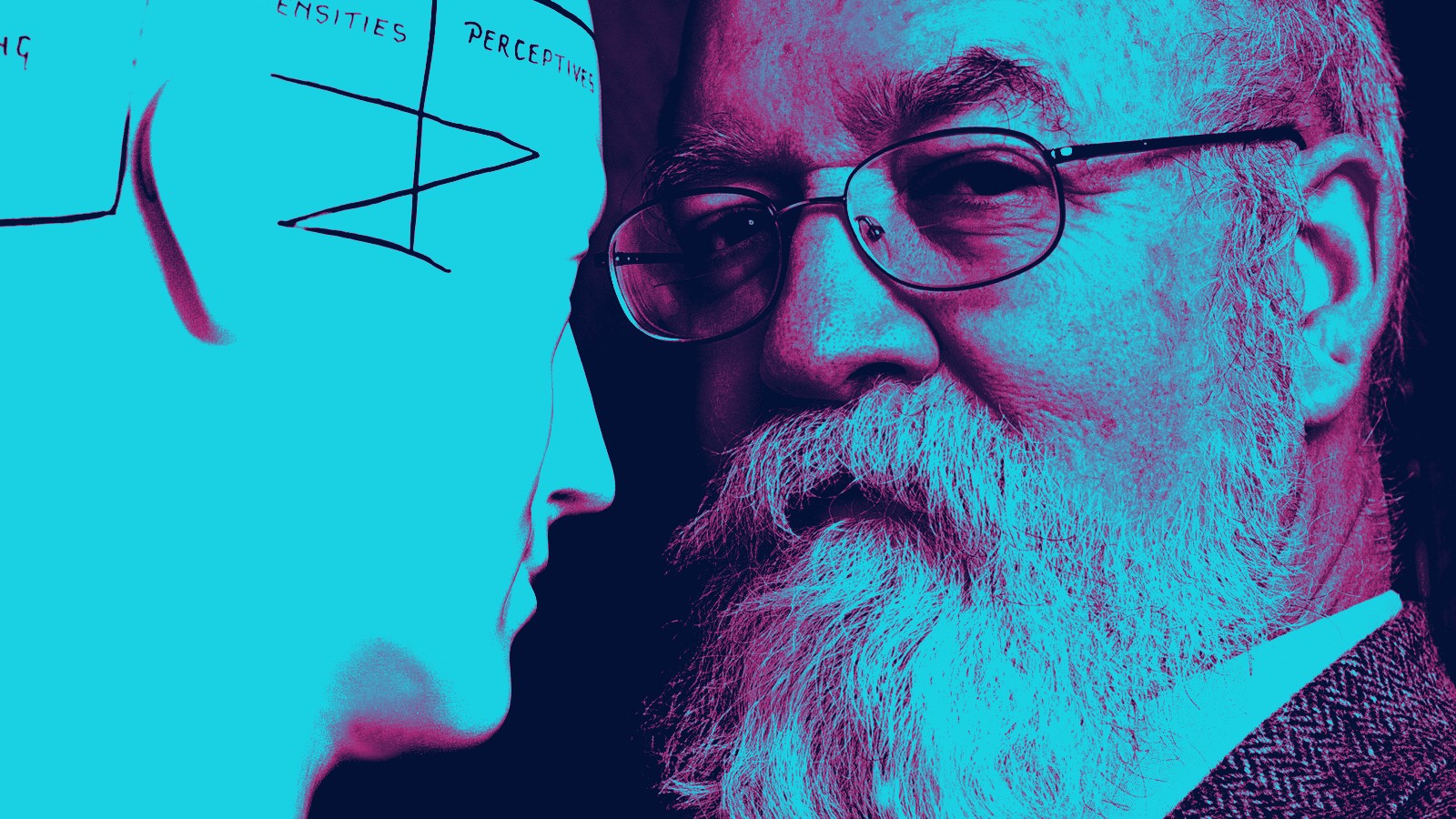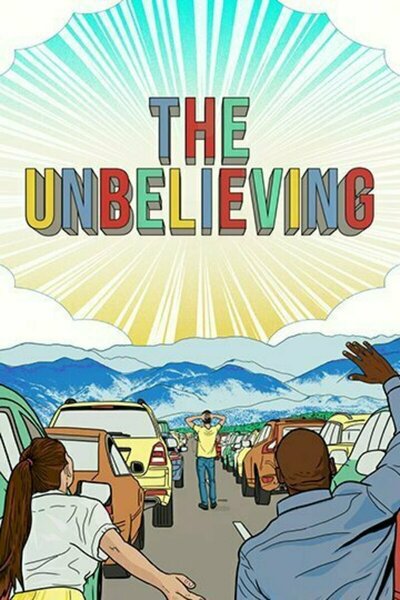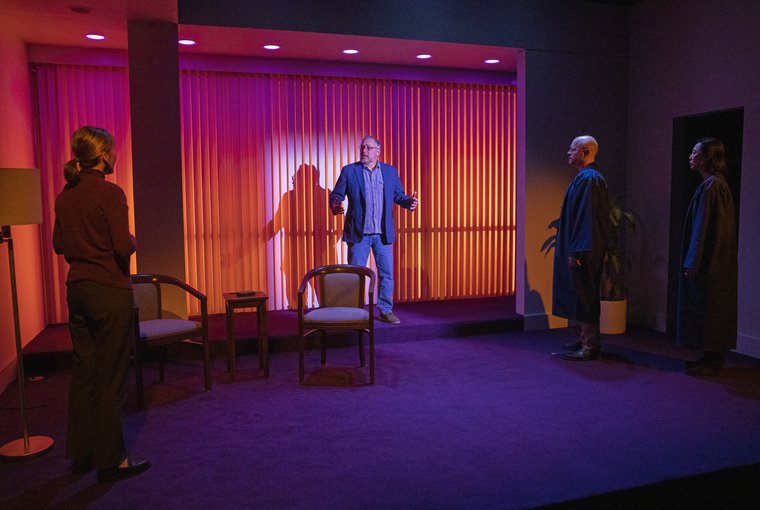To denizens of philosophical and scientific realms of study, the name Daniel Clement Dennett III is synonymous with free thought, boundless curiosity and the Four Horsemen of New Atheism. Through his life and research, Dennett continuously called humanity’s belief in a higher power into question, positing this devotion as an evolutionary adaptation gone rogue. In the realm of theater however, Dennett (or as he was called by collaborators, “Dan”) is known as one of the chief supporters of the 2022 play first titled Caught in the Pulpit, then Adam Mann (Not His Real Name), and ultimately named The Unbelieving. The Unbelieving is a natural extension of Dennett’s investment in secularism and dramatizes the stories of clergy confessing their unbelief, their complicated feelings about religion and hope for a future where they could be their authentic selves. And yet, as Dennett’s collaborators shared their recollections of him as a person, not simply as a philosopher or professor, something that becomes very clear is the overwhelming power of his own belief—in science, in people and in their capacity to live a rational and truthful life—and how this belief helped shepherd a new play and new ways of thinking into the world.
By now, The Unbelieving’s backstory has been well covered; this article will get you up to speed. The abridged version is that Linda LaScola, a researcher and clinical social worker, collaborated with Dennett to publish a study on non-believing clergy, which they turned into a book titled, Caught in the Pulpit. Upon reading the book, Dennett’s wife Susan found the verbatim transcripts deeply moving and suggested they might make excellent source material for a play. Dennett approached Marin Gazzaniga (the daughter of one of his colleagues) who was equally touched by the stories and people preserved on the page. While Marin translated the research into verbatim theater, Dan and Linda started an LLC to fund the project, then hired an entertainment lawyer, and the rest is history… More or less.
What this broad sketch leaves out, perhaps, is the “why” of it all. According to LaScola, religion was not a main academic interest of Dennett’s. Nor, it seems, was theater. But perhaps, supporting The Unbelieving, in its synthesis of the two, became an extension of his own sense of purpose. La Scola first met Dan to discuss the possibility of studying atheist and agnostic clergy; what she found, in addition to a sharp thinker, was a human being already negotiating his own mortality. Of their initial meeting in Washington D.C., LaScola said, “I met him at the conference, which was the first time I had seen him in person. He recently had had a heart attack.” Wryly, she adds, “He didn’t seem to do anything to take care of himself. He just didn’t. He enjoyed life.”
The flip side of Dennett’s determination to live life to the fullest meant that where other people saw obstacles, he saw open doors. He made sure the original study he conducted with LaScola was published, and when the opportunity to turn the research into a piece of drama appeared, he followed that spark to its natural conclusion, protecting those who’d shared their stories all the way through the process. He did not try to curtail Gazzaniga’s artistry, and only sought to make sure that the play offered hope to those abandoning the spiritual world in favor the physical one. He believed that this transition could provide peace and relief instead of shame, despair and secrecy. “It was certainly important to Dan that there was a lot of joy,” reflected Gazzaniga. In the book, Caught in the Pulpit, there is a section titled, “What is Lost and What is Gained,” the latter half of which Dennett thought it equally necessary to portray. “I think the character of Dennis says it quite well,” Gazzaniga says referencing one of the post-religious clergy in the play. To paraphrase his words, “Now that I am not caught up in these other beliefs, I can embrace the rational world, the here and now enjoy this life. The one life I have. Instead of putting everything into an afterlife.”
Gazzaniga also spoke about how The Unbelieving became a part of Dennett’s legacy, suggesting that for him, the play was “yet another way to challenge how people think…. Opening people’s minds up to questions. [Dan] was vigorous at times in his thinking. But what I learned working with him is he also had a huge heart.” His legacy extends beyond the play as well, to encompass his own particular way of being in the world, without which The Unbelieving might not have happened. LaScola adds that, “He was very down to earth and extremely intelligent at the same time. And, I think he was he was able to size people up and know what their abilities were. He wanted assistance, and he appreciated whatever you had to bring to him.”
Dennett was quoted once as saying, “No miracles allowed,” the idea being that miracles are not a rigorous explanation for why anything happens. But, there might be another reason beyond that: if events can be explained by miraculous intervention, there’s little room for the delightful work of puzzling through, of exploration and discovery. As divinity recedes from view, the presence of humanity—our strivings, our brilliance, our failures—comes into view more clearly. As we accept this humanness, as singular and finite as it is, we are free to ask the most important questions, the whys and hows that shape our daily existence. With the success of The Unbelieving and the recent announcement of its publication, it’s all the more evident that The Unbelieving’s existence and process of becoming was not miraculous either, rather a gift stamped with Dennett’s humanity as he followed his own questions to create a more dynamic, fair and thoughtful world.
Extended Play is a project of The Civilians. To learn more about The Civilians and to access exclusive discounts to shows, visit us and join our email list at TheCivilians.org.











